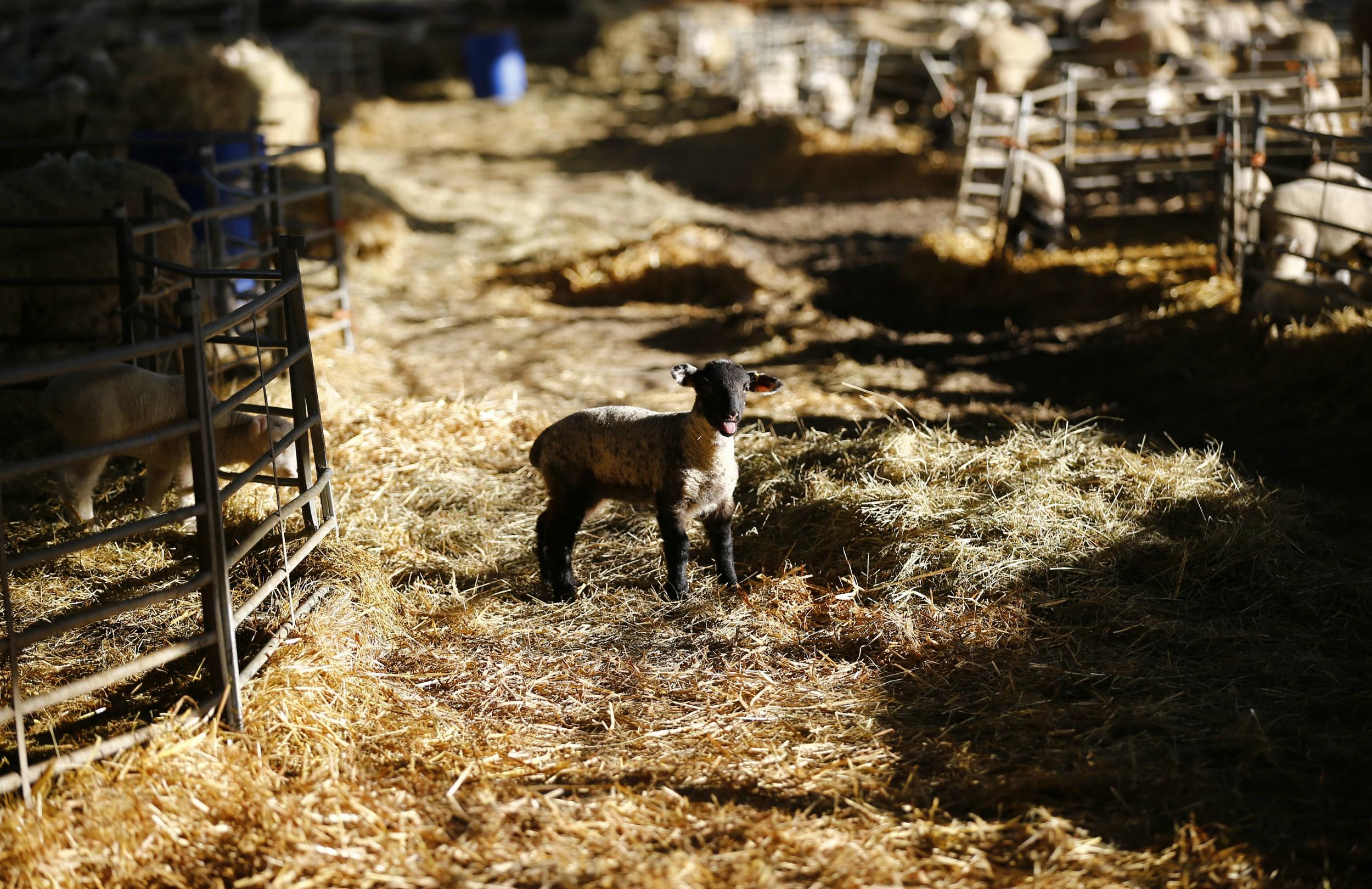Perception more an issue than EU court’s ban on unstunned meat organic status, say UK’s halal lamb suppliers
A European Union-wide ruling that meat from animals which are not stunned before slaughter cannot be labelled as organic has raised mixed feelings among suppliers in Europe’s biggest lamb-producing country.
On Tuesday, the European Court of Justice (ECJ) determined that “the rules of EU law do not authorise the placing of the organic production logo of the European Union on products derived from animals which have been slaughtered in accordance with religious rites without first being stunned.â€
It brings an end to a case that has been before the court since 2012, when a French animal welfare association petitioned for it arguing that unstunned meat should not be marketed as organic.
Britain produces far more lamb than any other European country by a substantial margin, according to the most recent EU data from 2014. It also slaughters more for use in the halal market than for the conventional market, according to the Food Standards Agency (FSA). A recently published FSA survey reported that 24 percent of British unstunned sheepmeat was exported almost entirely to the EU.
Due to the EU court’s ruling, Britain’s sheepmeat cannot now be recognised as organic unless the animal has been stunned prior to slaughter.
“It’s not a black and white issue; slaughter is nuanced in itself within the Islamic tradition,†said Muhsen Hassanin, a partner at UK-based Abraham, a supplier of mostly stunned organic halal lamb and chicken. “We are not for or against any of it.â€
Speaking to Salaam Gateway from his farm in South Wales, Hassanin said more worrying was the impact of media coverage brought about by rulings like the ECJ’s on the public’s perception of organic halal meat.
He believes consumers and customers are hardly aware that animals stunned for halal meat are slaughtered in technically the same way as animals slaughtered for other types of meat.
Neither are enough aware that unstunned meat occupies a tiny segment of the market, especially when it is certified organic.
The UK’s Food Standards Agency estimates that 88 percent of halal meat comes from animals that were stunned before slaughter, using the captive bolt. In turn, halal meat accounts for 12 percent of the overall market, while the organic halal share is negligible.
“People are very sensitive about unstunned meat, rightfully so, and it’s also one of the far right agenda’s main points. Most people don’t have an understanding of the reality of the slaughterhouse,†Hassanin added.
In Oxfordshire, Lutfi Radwan has been running Willowbrook Farm with his wife since 2002, supplying lamb and chicken to customers across Britain.
The farm was the first in the country to be certified halal and organic, and though all animals are slaughtered using the stunning method, Radwan believes the best method of slaughter needs to be looked at for organic producers.
“In a sense there should be no need to use a stun†in an organic environment which is a far cry from a mass-production slaughterhouse.
“That was the tradition up until the 1970s and 1980s when [stunning] was first introduced. Even in Britain they would dispatch an animal quickly in a very traditional way, similar to halal slaughter,†Radwan told Salaam Gateway.
“The problem doesn’t lie in the method, be it stunning or non-stunning, it lies in the nature of the abattoirs: the throughput of the abattoir and the requirement sometimes in the case of poultry to be killing three birds every two seconds. The sheer volume requires some way of pacifying the animals, such as stunning.â€
The European court’s ruling will not have an impact on business, he believes.
“We aren’t talking about a problem for the vast majority of halal production. It’s really an issue of a very small number. It’s a much bigger issue for the kosher community because that’s 100 percent non-stunned.â€
A manager of a company that has been supplying quantities of unstunned organic halal lamb, chicken and goatmeat across Britain branded the ruling “unfairâ€, however. Speaking on condition of anonymity due to the sensitive nature of the issue, he said his company is now looking at whether to continue unstunned production without an organic stamp or to shift its focus on supplying stunned, certified-organic meat.
“I think this ruling seals the deal that effectively there isn’t anywhere else to go now,†he told Salaam Gateway. “For all this time we’ve been able to say we’re organic, but half the stuff we sell isn’t organic now.â€
“We’ve got to the point that it’s a bit unfair. Here we are trying to do everything by the book but then [organic certification bodies] Demiter and Soil Association and everyone else say they can’t certify you.â€
By contrast, the United States permits organic producers to perform ritual slaughters without stunning the animals. This was clarified in 2017 by a Department of Agriculture ruling that kosher and halal meat producers may label their products “organic†if they meet other necessary criteria.
“A lot of companies are having to face the same issue, but the real difference now is how you can describe your products online. They are all actually organic, so it’s unfair on companies that are just trying to get all that organic stuff out there, and now they can’t charge the premium for it by having an organic mark,†the meat supplier said.
“We’re just waiting to see what will happen going forward. Most of us don’t have an issue with stunning anyway."
(Reporting by Richard Whitehead, Editing by Emmy Abdul Alim [email protected])
© SalaamGateway.com 2019 All Rights Reserved
